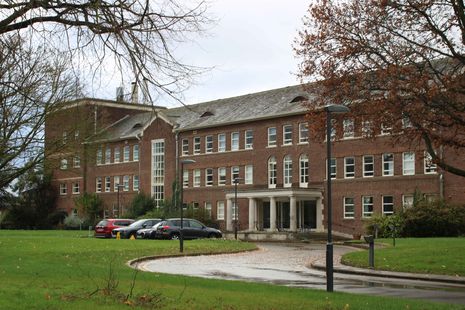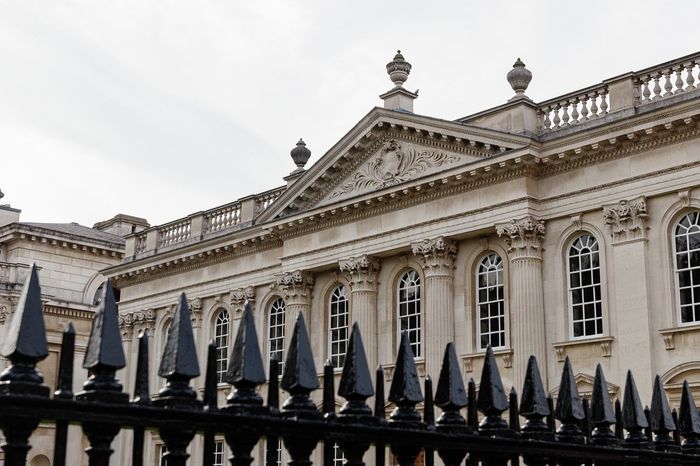Cambridge vets face uncertainty as accreditation threat looms
Following threats from the regulator, the SU has warned that the 2025 intake of veterinary students could be the course’s last

The future of Cambridge’s veterinary course has been thrown into uncertainty, following threats that the department may be stripped of its accreditation, leaving graduates unqualified as vets.
The Royal College of Veterinary Surgeons (RCVS), the regulator of Cambridge’s Veterinary Medicine bachelor’s degree, has downgraded the course’s accreditation and could remove it entirely.
This would leave graduated students unable to practice as vets in the UK without further qualifications.
The RCVS found that the course, ranked the best in the UK, must improve its health and safety, teacher training, and student complaints processes. The regulator’s report also raised concerns over animal euthanasia and student complaints of discrimination.
The course failed to meet 50 of the RCVS’ 77 accreditation standards, following a site visit in May.
An emergency motion tabled at the Students’ Union (SU) on Monday (25/11) stated that the 2025 intake of students “will be the last,” unless the course makes the significant improvements demanded by the RCVS.
In an email sent to all veterinary students on Monday, Professor Mark Holmes, the head of department, said that the RCVS had graded the course with “conditional accreditation.” This means that the department risks losing its accreditation entirely, unless it improves its “provision of education”.
The RCVS will visit the department again in September next year. If the course has not then made “significant progress,” it will be downgraded to “terminal accreditation” status.
“A terminal accreditation status is instigated when a programme is significantly non-compliant with RCVS standards and has been unable to address concerns in a timely manner,” prof Holmes said. Holmes described this news as “deeply concerning”.
Were this accreditation be awarded, the RCVS “would reserve the right” to strip the course of its accreditation entirely. Graduating students would then not automatically be awarded membership of the RCVS, and unable to practise as vets unless they passed a supplementary exam.
Prof Holmes told students: “We will do everything which we reasonably can to avoid that eventuality, as well as put appropriate mitigations in place for your education if it did.”
The SU motion described the course as a “valuable offering to our university community”, saying: “Cambridge should strive to offer the best possible education to its students and to attract the brightest students to apply for its courses.”
The RCVS report calls on the department to introduce “robust implementation of health and safety policies,” ensure that all teachers receive “quality assured training”, and “standardise its approach to the resolution of student grievances”.
The report also states that student reports of racism are “not being taken seriously or explored effectively”.
Other failings, according to the RCVS, include the lack of “a comprehensive and robust assessment strategy,” and the “automatic euthanasia” of animals requiring isolation.
The department was also criticised on the “assessment load” given to students, calling for it to become “more balanced and manageable”.
Though the course had previously been reviewed by the University, the SU president said on Monday that improvements have not yet been made because “everything in Cambridge moves at a snail’s pace”.
Prof Holmes told students: “Our immediate concern is for your welfare.” The SU motion also noted that students “may need additional wellbeing support” while their future as vets remains at risk.
The department held an online townhall meeting yesterday, where students were able to ask heads about the accreditation threat and the University’s plans in response.
One second-year vet student told Varsity that the accreditation threat is “embarrassing,” and will affect students’ “reputation” when applying for placements.
A third-year vet student told Varsity they do not feel the report is a “fair representation of the teaching”. The consensus among students is that the report does not reflect the nuances of the tripos, they claimed.
The RCVS regulates veterinary medicine courses at seven other UK universities, including Bristol, Edinburgh, and Liverpool.
The course has also notified current and deferred applicants of the accreditation threat, as well as current students, Varsity understands.
Professor Mark Holmes and Professor Jon Simons, acting head of the school of biological sciences, told Varsity: “To address the serious issues raised, the University will immediately bring in external expertise to support the Department of Veterinary Medicine and help lead the intensive work required over the coming months. The Department has been acting on the recommendations since being informed in the summer and this work will now be accelerated.”
“The RCVS noted strong research led and clinical teaching, which we provide to excellent students, so there is a strong foundation from which to meet these recommendations,” they added.
The department heads continued: “While we recognise the RCVS report will cause concern, it is important to be clear that we remain accredited. We will do everything we can reasonably do to support students to complete their course and receive full accreditation.”
An RCVS spokesperson said: “In reaching a decision and timeframe, given the problems identified, and the impact these will have on student learning and experience, Education Committee members firmly agreed on the need to help the vet school support both existing students on, and future applicants to, the Cambridge veterinary programme.”
 News / Judge Business School advisor resigns over Epstein and Andrew links18 February 2026
News / Judge Business School advisor resigns over Epstein and Andrew links18 February 2026 News / Hundreds of Cambridge academics demand vote on fate of vet course20 February 2026
News / Hundreds of Cambridge academics demand vote on fate of vet course20 February 2026 News / Petition demands University reverse decision on vegan menu20 February 2026
News / Petition demands University reverse decision on vegan menu20 February 2026 News / CUCA members attend Reform rally in London20 February 2026
News / CUCA members attend Reform rally in London20 February 2026 News / Gov grants £36m to Cambridge supercomputer17 February 2026
News / Gov grants £36m to Cambridge supercomputer17 February 2026










